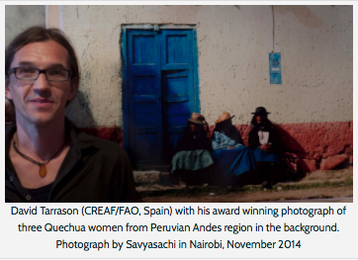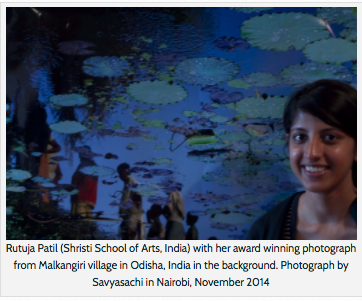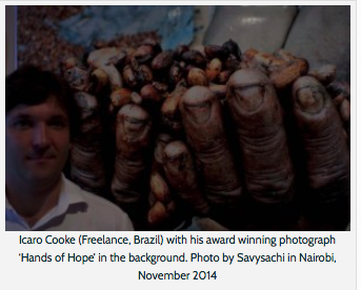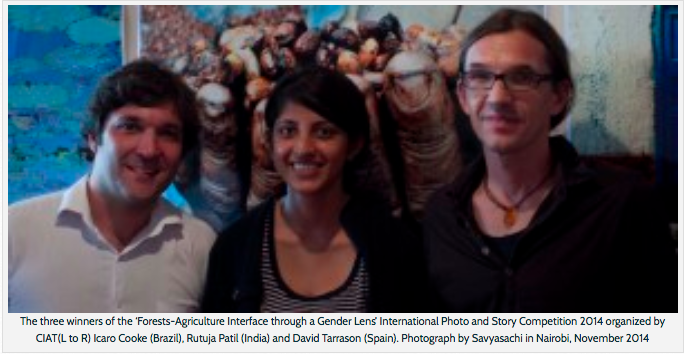|
NAIROBI, 2014 “I have many camera lenses, but don’t have a gender lens. Where can I buy a gender lens?” This might be one of the naïve queries that was received in context to the announcement of the CGIAR international photo and story competition on Forests-Agriculture Interface through a Gender Lens 2014. The twist of this competition was to capture a photo from gender perspective and to write a short story about the photograph. “Public partnership is critical on issues such as gender and diversity in agriculture and natural resource management. Photography is an excellent low-cost communication technique to showcase people’s perspective”, justifies Dr. Purabi Bose of CIAT for initiating open-to-all international photo with a story competition. About 280 individual entries were received from 31 countries across globe. The contributors of individual entries were diverse from students to researchers, photographers, farmers, policy makers, private sectors and home makers. The international selection committee included a gender expert, academician, human right activist, creative artist, forest-agroforestry scientist, photographer, and student intern. In total 40 photos and stories were selected and published in an open access e-book Landscaping Actually: From Forests to Farms though a Gender Lens The three winners – David Tarrason (Spain), Rutuja Patil (India) and Icaro Cooke (Brazil) – received fellowship from the CGIAR Research Program Forests, Trees and Agroforestry Integrating Gender of CIAT, Colombia to participate in a two-day CGIAR Gender Integration in the Research Cycle workshop in Nairobi, November 2014. The winners shared their communication knowledge with the workshop participants about ‘using’ and/or ‘seeing’ landscape through a gender lens.
This blog was written by Purabi Bose with inputs from Savyasachi who is CIAT’s FTA Gender Communication Intern and Student of Shristi School of Art, Design and Technology, Bangalore, India and the three winners of the competition – David Tarrason, Rutuja Patil and Icaro Cooke.
0 Comments
|
Privacy Policy: We use Google Analytics to collect data to improve the Website. By using and accessing the website you are consenting to use of Google Analytics.
All Rights Reserved. PURABI's PERSPECTIVE
Purabi Bose, Ph.D. Passionate about nature and social policy, Ms. Bose is a mountaineer/ trekker, drummer, polyglot (only ten languages), leads a less materialistic lifestyle and loves traditional cooking & feeding. She is perseverant, and values her freedom of being an independent woman. Ms. Bose is a versatile social scientist and has aptitude for creative communications. A 'people person', her academic background is in social anthropology, environmental science, food science and human development. You might be interested to read her reviews on various cultural events at Culture Call ARCHIEVES
November 2019
CATEGORIES
All
Privacy Policy: This website uses Google Analytics to improve the Website. By using and accessing the website you are consenting to use of Google Analytics.
|




 RSS Feed
RSS Feed
